Chinese automakers aiming for the world market
For the first time, a Chinese brand vehicle will be manufactured and sold in Europe, with further planned expansion into the US. Behind this project is the billionaire Li Shufu and his Geely Group. Founded as a manufacturer of refrigerators in the 1980s, he has continually created a Chinese auto empire through acquisitions. Volvo, Lotus and London Black Cabs are now part of the group and they are one of the largest single shareholders at Daimler. Li is the leader of China’s ambitions to secure a place among the three major nations in the global auto industry – the US, Germany and Japan. He is not alone: at least four Chinese automakers and startups intend to sell their vehicles in the US next year.
The auto industry is facing another shift after China recently announced its intention to phasing out its 50 percent cap on foreign investor participation in Chinese automakers. This could benefit both Volkswagen and Ford, which already own production facilities and joint ventures in China, as well as Tesla, which had long been planning to set up a stand-alone location in China.
When products and cars from China were initially ridiculed as cheap and unreliable copies, a notable change has taken place. So are three of the top five smartphone manufacturers from China. It will probably take some time before the local car buyers will accept a Chinese vehicle as fully fledged, especially with regard to customer loyalty to traditional brands such as Audi in Germany or Ford in the USA. Meanwhile, Chinese automakers are aiming to compete with Japanese and Korean models. International trade policy, and especially the trade dispute between the US and China, will also have an impact on the success of Chinese vehicles abroad.

The era of electromobility seems very convenient to the young Chinese auto industry. Since they are developing many models from scratch, they are already designed for electric drives. Globally, China produced half of all electric vehicles last year. And here, too, is already on an expansion course – the state car company BAIC has announced to build a factory for electric cars in South Africa, BYD already produces electrically powered buses in California.
The CCC certification of the vehicles as well as emission and consumption tests are a big challenge for manufacturers worldwide.
For more information on how CCC certification may affect your company, or for more information about CCC certification in general, the process, and the associated costs, please visit our website and our news section here you will find current updates twice a week.
Please do not hesitate to contact us for further details and consultation. You can contact us via e-mail, or call us (UK: +44 2071931135, Rest of Europe: +49 69 2713769150, US: +1 773 654-2673).
You can also check out our free CCC-Brochure, which can be downloaded right here as a PDF file or you consult our book (in English) “A Brief Guide to CCC: China Compulsory Certification”, which can be found directly here on Amazon.
Trade Dispute Affects Ford Motor Company
The current trade dispute between the United States and China have had a strong impact on imports of products into China. China has increased customs controls on the import of American products, which have led to significant delays. These restrictions have impacted the US automotive industry, especially the brand Lincoln.
Ford was asked to carry out additional tests on exhaust components of the vehicles and other technical inspection. Such additional import requirements have been increasing over the past two weeks, leading to significant delays.
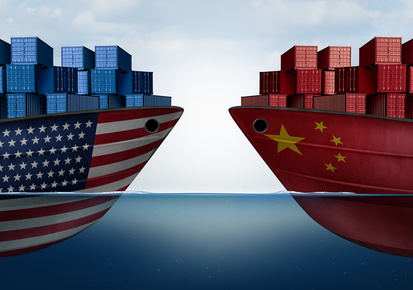
Last year, Ford imported about 80,000 vehicles to China, more than half of which were from the Lincoln brand. Lincoln sold around 55,000 vehicles in China in 2017, of which 100% were imported from US production to China.
Other companies, such as General Motors, are less affected by the consequences of the trade dispute. GM states that for the year 2018 a quantity of under 1000 vehicles will be imported to China, therefore it will be affected only insignificantly by the restrictions.
A CCC certification is required for the import of vehicles to China. The China Compulsory Certification is necessary to legally import and distribute vehicles, vehicle components and service parts to China.
For more information on how CCC certification may affect your company, or for more information about CCC certification in general, the process, and the associated costs, please visit our website and our news section where you will find current updates twice a week.
Please do not hesitate to contact us for further details and consultation. You can contact us via e-mail, or call us (UK: +44 2071931135, Rest of Europe: +49 69 2713769150, US: +1 773 654-2673).
You can also check out our free CCC-Brochure, which can be downloaded right here as a PDF file or you consult our book (in English) “A Brief Guide to CCC: China Compulsory Certification”, which can be found directly here on Amazon.
Volkswagen launches model offensive in China – SUVs are in the focus
The launch of the model offensive was announced at the auto show in Beijing, where Volkswagen presented its new Touareg. Until 2020 another ten new SUVs will follow. Volkswagen Group CEO Herbert Diess gave the green light for a national advertising campaign in China, which should further strengthen the reputation of the brand. The Chinese market has become one of the most important for Volkswagen worldwide. In no other country or region could the VW group sell more cars. Last year 3.2 million vehicles were sold, representing a market share of 13%. According to CEO Diess this must mean however no standstill for the development at VW. He announced a complete overhaul and expansion of the model range until 2020, with nine premieres to follow later this year.
The model offensive with new and innovative vehicles focuses on SUVs. The worldwide trend for these SUVs is particularly distinctive in China. Market researchers predict that in China soon every second new car sold will be an SUV. VW would like to benefit from this development and introduce 10 new SUV models in the next three years, but even electric cars are a topic for VW.
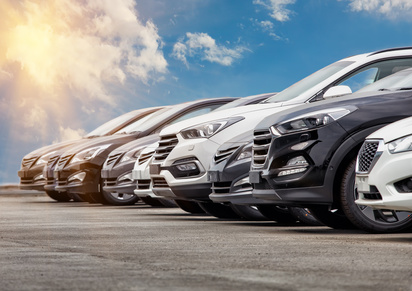
This year, a plug-in hybrid version of the Tiguan and a fully electric version of the new Bora will be released. The new fleet of electric cars will be launched in China in 2020, almost at the same time as in Europe and the US.
In China, VW operates a total of 19 production sites, of which nine are for vehicle manufacturing and the remaining 10 component plants. Many of the more than 20 models that Volkswagen offers in China are designed specifically for this market. Among them are the Teramont, a mid-range SUV that is also built and sold in the US under the name VW Atlas. Other only in China available models are the Phideon, a luxury saloon based on the Audi A6 and the Lamando, a Golf-based coupe.
Due to the increasing global presence of Volkswagen, formerly centrally in Wolfsburg located de-partments would have to be relocated abroad. The Volkswagen Group has set up three joint ventures in China with FAW-Volkswagen, FAW-Audi and Shanghai Volkswagen in order to be able to produce for the local market.
In addition, several vehicles produced outside of China are CCC certified and all vehicles manufac-tured in China have China CCC certification.
For more information on how CCC certification may affect your company, or for more information about CCC certification in general, the process, and the associated costs, please visit our website and our news section where you will find current updates twice a week.
Please do not hesitate to contact us for further details and consultation. You can contact us via e-mail, or call us (UK: +44 2071931135, Rest of Europe: +49 69 2713769150, US: +1 773 654-2673).
You can also check out our free CCC-Brochure, which can be downloaded right here as a PDF file or you consult our book (in English) “A Brief Guide to CCC: China Compulsory Certification”, which can be found directly here on Amazon.
CCC Talk at the Working Group Meeting “Customs and Foreign Trade Legislation” of the Chamber of Commerce Pfalz
On Monday, June 18, 2018 the Chambers of Industry and Commerce of Pfalz and Rhein-Neckar present the next working group meeting on “Customs and Foreign Trade Legislation”. MPR China Certification GmbH participates in the event with a presentation about the CCC certification in China. What is CCC? For which products is it required? The steps required for the certification process, special challenges and the concept of CCC Clearance Certificates. These and many other aspects will be explained to you in detail. Join us and take the opportunity to benefit from the first-hand knowledge and experience of our consultants on CCC certification. A Q & A round is planned at the end of the talk, but we also encourage all participants to approach us directly for advises on individual questions.
The working group meeting for “Customs and Foreign Trade Legislation” is a platform for companies to exchange their experiences. Focus points are difficulties in import and export as well as recent changes in customs and foreign trade law. In addition to the CCC certification, there will be a talk on experiences with export controls as well as a presentation of the regional customs office. Currently, the working group comprises approx. 50 companies from the two districts of both chambers involved. The meetings usually take place twice a year, with the meeting place switching between Mannheim and Ludwigshafen.
The event will take place in the premises of the Chamber of Commerce Pfalz: Am Ludwigsplatz 2-4, Ludwigshafen, House I, Room Rheinpfalz. Start of the event is at 1.00 pm.
For more information please visit the website of the Chamber of Commerce Pfalz (German).
Since 2005, the China Certification Corporation has been helping companies around the world obtain CCC (China Compulsory Certification). Further certifications that we can support you with include the Taiwan Certification for automotive components and CEL (China Energy Label). We also offer customs clearance in China.
If you would like more Information regarding CCC certification, please visit our website. Here you can learn more about the certification process and the costs associated with certification. You will also find details regarding our certification package on our website including a general anticipated time frame. Take a look at our references section to see some of our clients and what they are saying about us. For more detailed information please download our free booklet “CCC Made Easy” here. You may also consider our book “A Brief Guide to CCC: China Compulsory Certification”, which can be ordered directly on Amazon here.
IAA Commercial Vehicles 2018 – CCAP and MPR China Certification GmbH jointly present the CCC Certification
The IAA Commercial Vehicles takes place from 20 to 27 September 2018 in Hanover and is the world’s leading trade fair for transport, logistics and mobility in the area of utility vehicles.
In hall 13 at booth E02, the China Certification Center for Automotive Products (CCAP) and the MPR China Certification GmbH will present the CCC certification at their shared booth.
Commercial vehicles play a significant role in our lives as both public and freight transport highly depend on vans, buses or trucks. China plays a special role in this: The improving access to remote provinces, megacities with complex infrastructure, growing environmental awareness and the associated developments, such as eMobility, are placing ever-new demands on commercial vehicles.
The CCC certification is one of the most important import and production conditions for commercial vehicles and passenger cars in China. From interior trim parts to seats and external lights, without a valid CCC certification, legal import of such products is usually not possible. As a result, the Chinese certification authority CCAP will provide all visitors and exhibitors at the fair with valuable first-hand information about the CCC certification. MPR China Certification GmbH will also available for answering questions about the certification procedure or individual advice. Since 2005, the company has offered services related to CCC certification and established very close ties to the CCAP.
If you are interested in CCC certification or would like to find out more about the subject, do not hesitate to visit CCAP and the MPR China Certification GmbH at their shared booth at the IAA Commercial Vehicles fair.
The CCAP team and the MPR China Certification GmbH cordially invite you to their joint booth No. E02 in Hall 13.
From car seat manufacturer to technology company – the impressive development of the Lear Corporation
US-based vehicle supplier Lear Corporation can look back on a successful past business year. The good development is mainly based on a broader product lineup and increasing sales of SUVs and premium vehicles using Lear components. The company has perfectly mastered the transformation from a mere manufacturer of car seats to a full-fledged and innovative technology group for the automotive industry. With the development of so-called “smart seats”, which are connected with the safety systems of the vehicle, they could prove to be an advanced manufacturer. When the vehicle sensors register an accident, the seat automatically moves to a safe position. Comfort features such as speakers in the headrests, air-conditioned seats or sensors for monitoring body functions will also be available in the future.
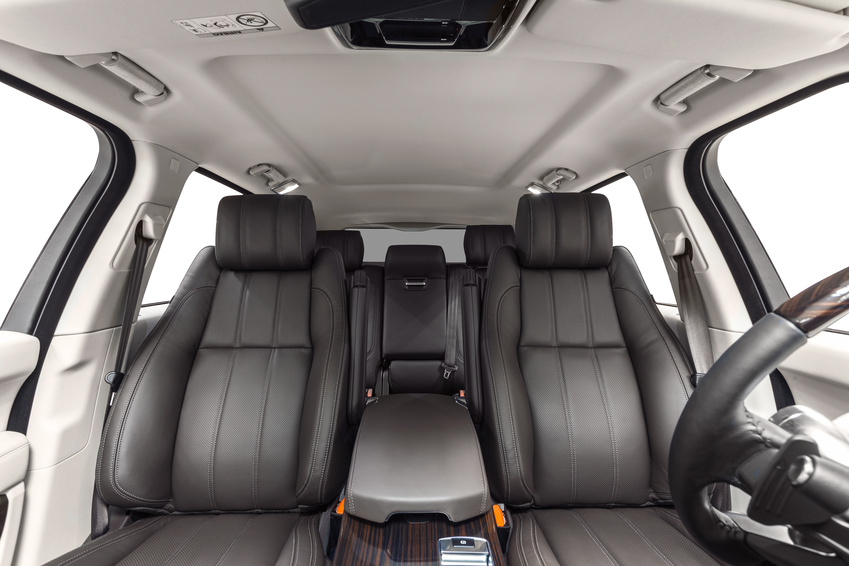
Another growth sees the Lear Corporation in China. So far, only about 14% of sales are generated in this region. Due to the generally increasing sales of new vehicles and in particular SUVs in the world’s largest car market, they are hoping for an increase in market share. The car parts supplier is already well positioned in China and has close relationships with foreign and local vehicle manufacturers. As a result, it can possibly offset the declining needs of one customer through more sales to others.
Through corporate acquisitions, Lear Corporation is clearly on a growth course and has been able to implement their know-how in its products. At the end of 2015, Arada Systems, a manufacturer of vehicle communication systems, and EXO Technologies, which develops GPS systems, were acquired by Lear. With the purchase of the car seat division of the supplier Grupo Antolin, it was also possible to secure a new technology for power supply and seat adjustment.
Car seats are becoming an increasingly important component for the safety of vehicle occupants. This includes strengthening the seat structure with modern materials, installing various airbags and adjusting the seat and headrests during an accident. Companies that want to produce or import car seats and components in China or for the Chinese market have to provide the required China Compulsory Certification (China CCC).
For more information on how CCC certification may affect your company, or for more information about CCC certification in general, the process, and the associated costs, please visit our website and our News Section where you will find current updates twice a week.
Please do not hesitate to contact us for further details and consultation. You can contact us via e-mail, or call us (UK: +44 2071931135, Rest of Europe: +49 69 2713769150, US: +1 773 654-2673).
You can also check out our free CCC-Brochure, which can be downloaded right here as a PDF file or you consult our book (in English) “A Brief Guide to CCC: China Compulsory Certification”, which can be found directly here on Amazon.
Planned omission of investment limit: China opens its car market
With a big step towards opening up the Chinese market, the Chinese government has announced the abolishment of the 50 percent rule for foreign companies’ involvement in vehicle manufacturers. The law was introduced in 1994, stating that foreign automakers can not own more than half of the shares of local companies. This forced them to work together with Chinese companies or to form joint ventures. With this arrangement, the government promised improved cooperation and support for Chinese companies. Also, the long-term and sustainable investment of foreign companies and investors should be ensured.
Now it was surprisingly announced to abolish this limitation gradually. This political decision marks a new turn in a turbulent week for Chinese trade. China imposed a temporary punitive tariff on US grain after the United States banned American companies from selling parts to Chinese phone maker ZTE Corporation on Monday. Step by step, companies that produce electric and hybrid cars will first be exempted from the limitation this year. Commercial vehicles will follow in 2020 until finally the complete car market from 2022 will be opened.

Although many, especially German automakers, welcomed this decision, the reaction was rather calm. Many had already invested in joint ventures in the past and had good experiences with them. Not much will change for these companies in the future. However, companies that do not yet produce in China could benefit. Many automakers had to deal with high import duties for new vehicles and components. Tesla, for example, had several times in the past considered to gain a foothold in China, but this has not yet realized. Ford recently announced a $ 756 million investment in the production of electric cars with local partner Zotye Auto. Now is a good opportunity to build a manufacturing facility in China.
For Chinese-made vehicles, as well as for imported vehicles, a China CCC / China Compulsory Certificate certification is required.
For more information on how CCC certification may affect your company, or for more information about CCC certification in general, the process, and the associated costs, please visit our website and our News Section where you will find current updates twice a week.
Please do not hesitate to contact us for further details and consultation. You can contact us via e-mail, or call us (UK: +44 2071931135, Rest of Europe: +49 69 2713769150, US: +1 773 654-2673).
You can also check out our free CCC-Brochure, which can be downloaded right here as a PDF file or you consult our book (in English) “A Brief Guide to CCC: China Compulsory Certification”, which can be found directly here on Amazon.
German automakers could suffer from the trade dispute between China and the United States
The simmering dispute between the two nations over trade policy and import tariffs is slowly evolving into a full-blown trade war. China’s response to US foreign trade policy and the announcement that it will impose a punitive tariff of 25% on American auto imports could severely affect some German automakers. In particular, Daimler and BMW, which produce SUVs in the US and export to China, would be more affected than US brands. Tesla will also have to accept losses and could sell less electric cars in what is now the largest market, while other American automakers have already partially relocated their production to China and thus get away with a slap on the wrist. Volkswagen also produces a large share of its vehicles through three local joint ventures. The South German automakers BMW and Daimler are exporting around 100,000 vehicles to China from the US each year, which is worth almost US $ 7 billion.
“The consequences for the German companies are an example of the unpredictable effects of a trade war,” said an analyst in New York. Global trade, especially in the automotive industry, has grown over the last decades and sudden disruptions can have significant negative consequences. The US has announced a 60-day reflection period for the plans. China is still waiting for this decision before taking action. Another loser could be the workers in the American auto plants. Declining exports will also mean fewer vehicles and layoffs. A tricky situation that US President Trump desperately wants to avoid. He has always emphasized in the past with his “America First” policy to maintain jobs in the country and to create new ones. Another influence on the situation could be the possible US exit from the North American Free Trade Agreement. This allows duty-free imports of new vehicles from Mexico and Canada. German manufacturers operate production sites there as well.
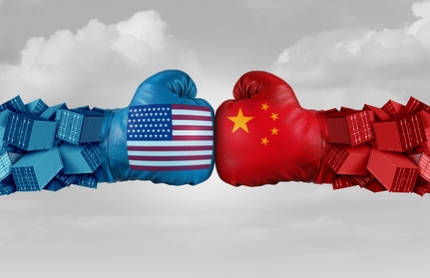
So it will be interesting to see to what extent the current and upcoming situation will affect the car market in China and the sales figures of German automakers.
All vehicles produced in the US, which are exported to China, have a so-called China CCC certification, which is necessary for the vehicles to be distributed legally in China.
For more information on how CCC certification may affect your company, or for more information about CCC certification in general, the process, and the associated costs, please visit our website and our News Section where you will find current updates twice a week.
Please do not hesitate to contact us for further details and consultation. You can contact us via e-mail, or call us (UK: +44 2071931135, Rest of Europe: +49 69 2713769150, US: +1 773 654-2673).
You can also check out our free CCC-Brochure, which can be downloaded right here as a PDF file or you consult our book (in English) “A Brief Guide to CCC: China Compulsory Certification”, which can be found directly here on Amazon.
According to a new study, robots are increasingly used in the manufacturing industry worldwide
Automation in the manufacturing industry is progressing inexorably. According to the International Federation of Robotics (IFR), this year’s record was an average of 74 robots per 10,000 workers, compared to 66 units in 2015. The use of robots in Asia has the highest growth rates with 9 percent while America and Japan are at 7 and 5 percent respectively. The number of robots is used as an index of automation of the manufacturing industry in various countries. Nowadays, robots are used in the entire production process, from the transport of raw materials, handling of the starting material to the packaging of the final product.
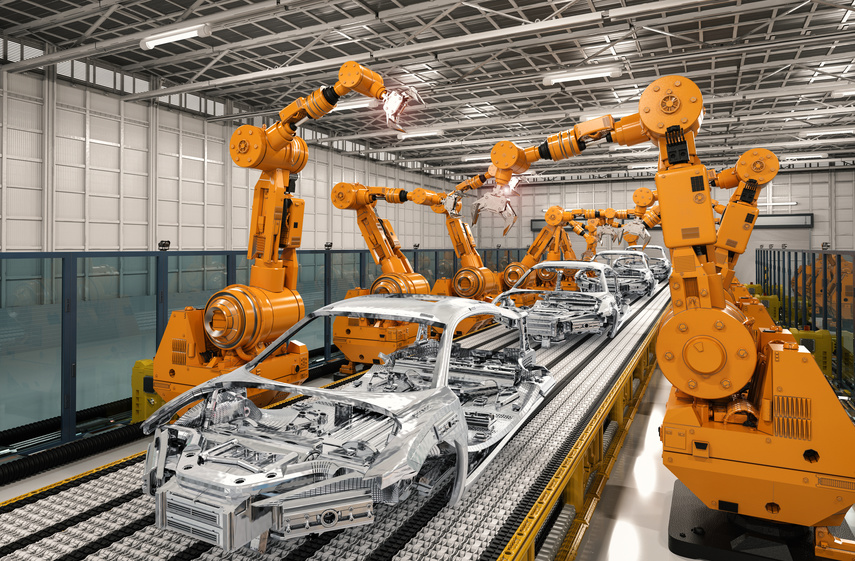
Development in China was the fastest worldwide to date. Between 2013 and 2016, the average increased from 25 to 68 units, currently China ranks 23rd in the world. The Chinese government has ambitious plans to move into the top 10 countries of automated production by 2020 and increase the value to 150 units, which would be doubling.
Leaders in the use of robots are countries with a high proportion of companies in the field of the electrical or electronics industry or the automotive industry. The number of research institutions and labor costs also play a role. South Korea has been the undisputed number one since 2010, followed by Singapore and Germany in third place.
Experts and analysts agreed that Germany is taking a leading role in robotics automation. They expect an annual increase in robot use by 5 percent in the manufacturing and automotive industries. The market unites traditional engineering, technological innovation and a broad positioning of the German engineering industry. It was also commended the formation of interest groups and the networking of universities and private institutions such as the German Aerospace Center (DLR).
Many components of robots require a China CCC certification (China Compulsory Certificate).
For more information on how CCC certification may affect your company, or for more information about CCC certification in general, the process and the associated costs, please visit our website and our News Section where you will find updates twice a week.
Please do not hesitate to contact us for further details and consultation. You can contact us via Email, or call us (UK: +44 2071931135, Rest of Europe: +49 69 2713769150, US: +1 773 654-2673).
You can also check out our free CCC-Brochure, which can be downloaded right here as a PDF file, or you can consult our English textbook “A Brief Guide to CCC: China Compulsory Certification”, which can be found directly here on Amazon.



